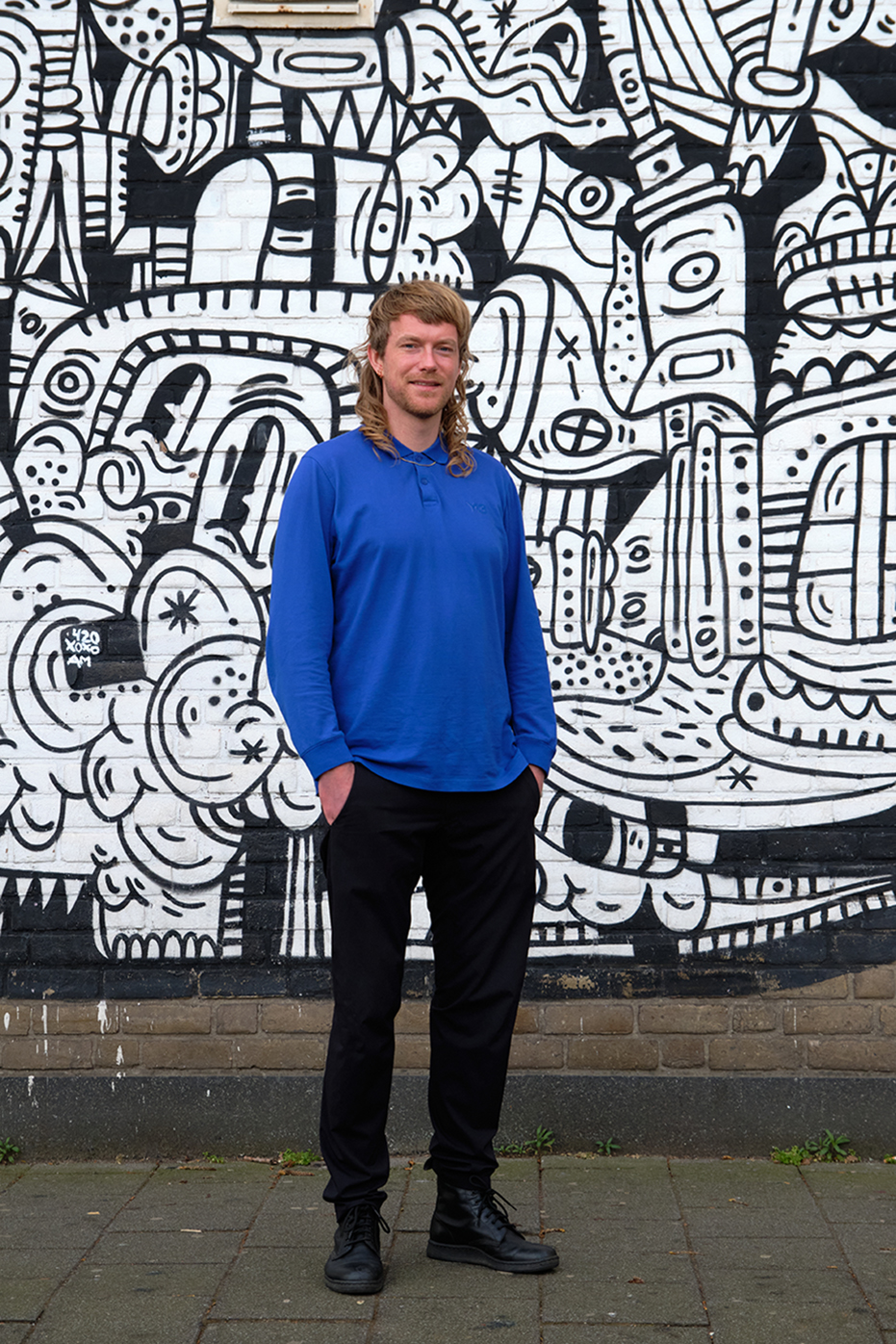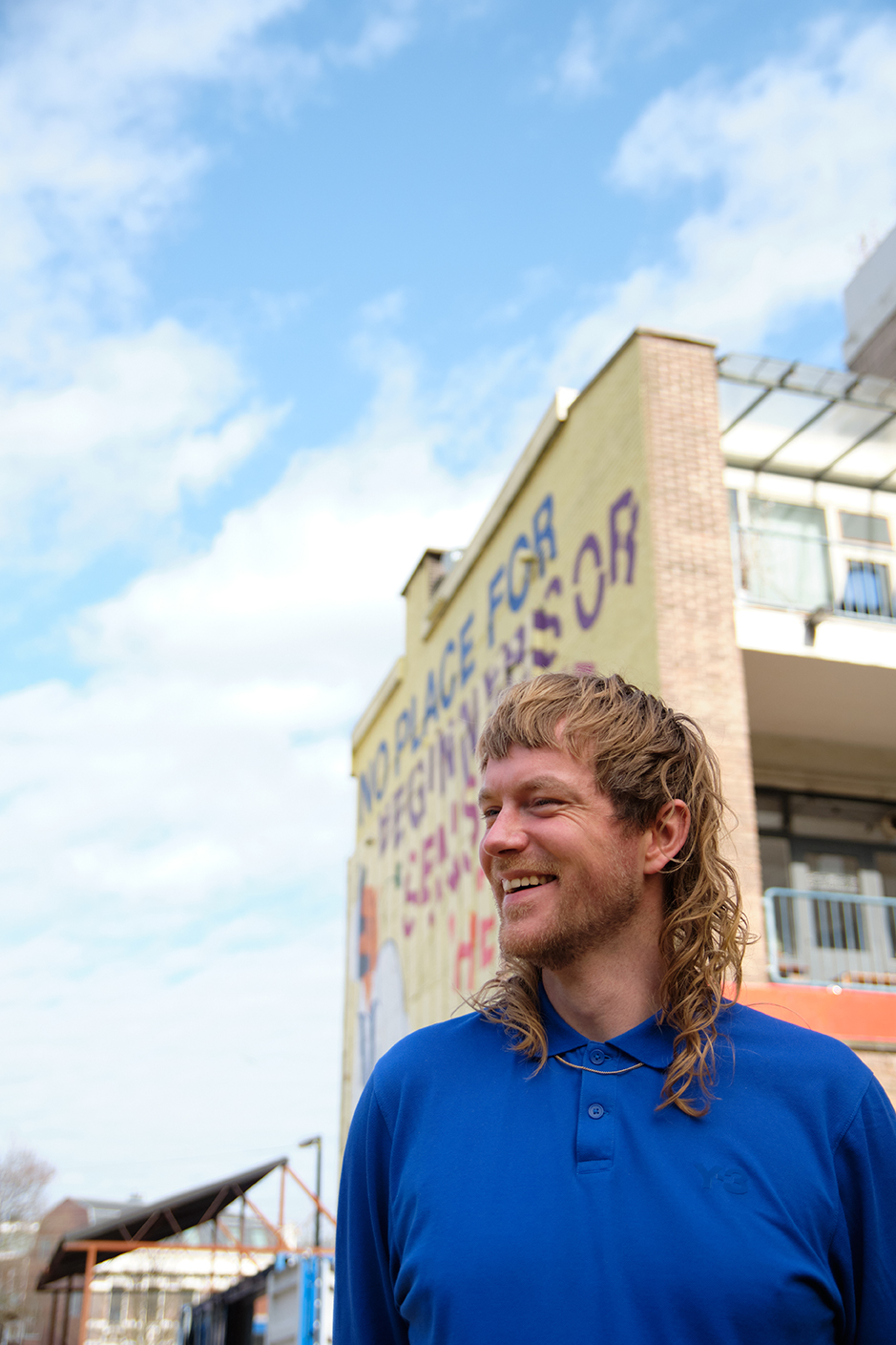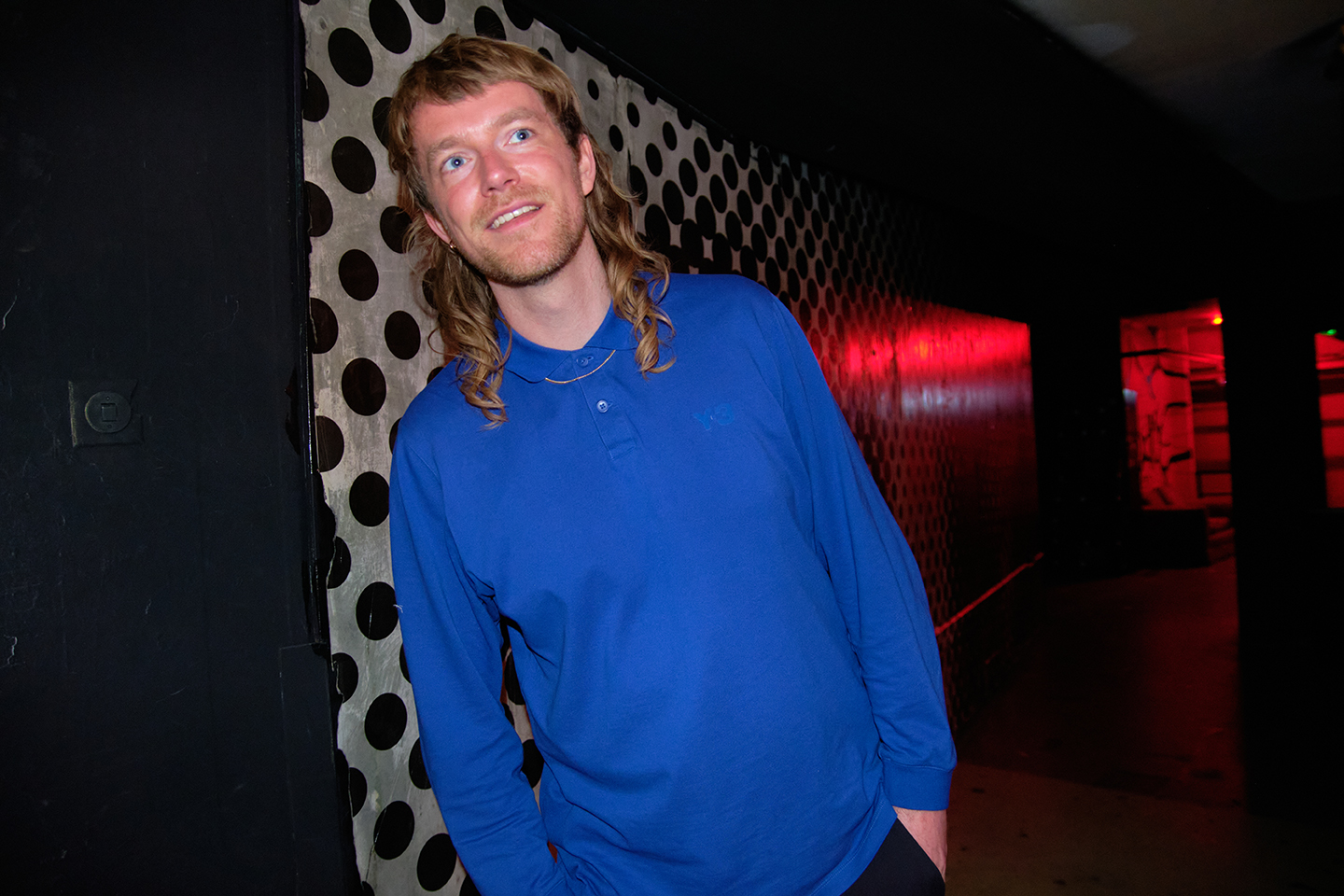THRIVING NIGHTLIFE IS MASSIVELY IMPORTANT AS A MAGNET FOR THE CITY
THRIVING NIGHTLIFE IS MASSIVELY IMPORTANT AS A MAGNET FOR THE CITY
With its strobe lights snuffed out and dance floors empty, the city’s nightlife has also been in lockdown for two long years. Yet there’s still plenty happening in the sector and focusing attention on the social and cultural value of ‘the night’ is as important as ever. Since mounting the 2019 demonstration ‘Opstaan voor de Nacht’ (‘Stand up for the Night’), Thys Boer and his foundation N8W8 Rotterdam have been working hard to promote Rotterdam nightlife and make it safely open to all. With his long blond locks and enthusiasm for the city, Thys has become a prominent personality in Rotterdam.
THYS, WHEN DID YOU DEVELOP YOUR PASSION FOR NIGHTLIFE?
“As a Rotterdammer born and bred, I was always passionate about local sport, art and culture. And especially in being actively involved in those things. I played competitive hockey for a long time, but at the age of 15 I discovered the city’s entertainment scene; places like Waterfront, Bootleg and Hollywood. I met a whole mix of people there who fascinated me: preppy types, hip-hop heads, techno freaks, punks. The vast diversity in styles and the conversations about music, ideologies and all kinds of issues taught me a lot about those people. And even more about myself, as I realize twelve years on. Now, apart from my job lecturing on leisure and events management at the Willem de Kooning Academie, I also chair the N8W8 foundation on a voluntary basis and am a youth representative on the city’s door policy panel to combat discrimination at nightclubs.”

CAN YOU DESCRIBE THE PATH THAT LED YOU TO FOUNDING N8W8 ROTTERDAM?
“I pursued my interest in nightlife in my bachelor’s thesis in cultural studies. After that, I did my master’s research in creative entrepreneurship on the social and cultural value of the night. This coalesced in the ‘Opstaan van de Nacht’ protest on 20 February 2019, against the closing of BAR (now POING Arcade), which I created as a Face- book event out of sheer frustration. Three days later, two thousand people gathered on Stadhuisplein, including major artists like David Vunk and heads of cultural institutions and nightclubs. It grew into something bigger than BAR alone, as that was just the latest in a string of places. During the protest, I presented the municipality with a manifesto of objectives for the cultural and nightlife sector, but that all turned out to be more complicated. Subsequently, I interviewed 150 people about what they did and didn’t like about Rotterdam nightlife, which then resulted in a vision document laying the basis for N8W8.”
HOW AND WHOM DOES N8W8 ADVISE?
“The foundation is guided by this vision document, which is split into three categories: policy, venues and content. We advise the municipality and businesses about urban nightlife through events designed to share knowledge and connect various different players, including scholars, professional experts and injured parties. We provide both solicited and unsolicited advice. Most recently, we’ve been involved in evaluating and developing hospitality and culture policy. And prior to that, in events policy for Rotterdam Festivals. We also occasionally offer unsolicited recommendations on developments where we think some sort of action is needed. I tend to go straight for the kill and contact politicians or officials directly or write an opinion piece in the paper.”

WHAT ARE THE FOUNDATION’S OBJECTIVES?
“Well-organized, thriving nightlife is massively important as a magnet for talented young people. In my master’s research (on the social and cultural value of the night), I distinguished four pillars that a well-organized nightlife contributes to. Those are good employment opportunities, social cohesion, talent development and urban appeal. After two years of no love and attention, and now with a new municipal council, I hope to see a turnabout for city nightlife and that this piece of the cultural sector will receive public funding as well. With the right resources, the foundation could make an instant difference. We are part of the community and really know what’s going on in the sector.”
COULD YOU DESCRIBE YOUR IDEAL SCENARIO FOR ROTTERDAM NIGHTLIFE?
“First off, I want to stress that I am really pleased with where Rotterdam is now. We are moving from a post-industrial to a creative city. However, there are groups of people who are being dis- placed from this new city; inhabitants because their homes are being torn down and business owners for whom there’s no place any longer in redeveloped areas. There’s been a lot of talk about urban development and redevelopment being raw and authentic, but how can you say that when the original residents and merchants are being kicked out? What’s raw is the deal that people being forced out are getting. The positive developments could be exponentially better by creating scope for nightlife as it is important for a buzzing city and making sure to include every- one in the new plans.”

IS THERE ANYTHING ELSE YOU’D LIKE TO SHARE WITH READERS OF RCD MAGAZINE?
“The rise of the 24-hour economy demands progressive thinking. These days, we are a city of makers and thinkers. We have what it takes to make the city more beautiful and progressive and to do so in a way that includes everybody. Rotterdam can strengthen her position as an at- tractive city to work and live in by improving its 24-hour economy and seizing the chances that occur at night.”
Text: Céline Boute & Fleur Nuisker
Photography: Bastiaan de Haas
